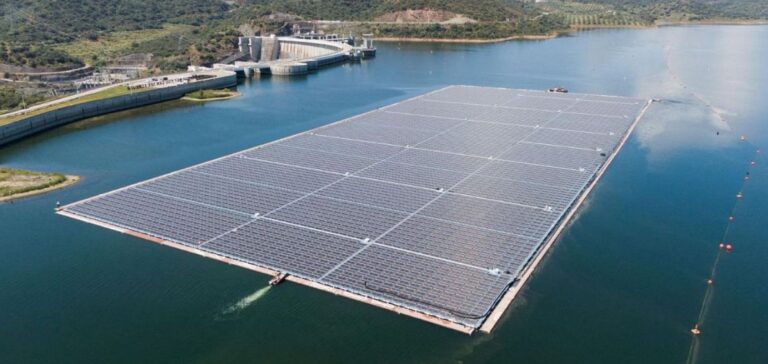Portugal is committed to increasing the share of renewable energies in its electricity consumption to 93% by 2030.
However, the target for installed electrolyser capacity for green hydrogen production has been reduced by 45%, reflecting the country’s first steps in this field.
Reflecting its ambitions, Portugal recently saw the construction of Europe’s largest solar power plant on its soil.
Energy Transition Objectives
Portugal’s new center-right government plans to release its updated energy plan for consultation until September 5.
In 2023, renewable energies already supply 63% of national electricity consumption.
The previous target of 85% for 2030 has now been revised to 93%.
Emissions Reduction Strategy
The updated plan aims to combat climate change and guarantee energy security, while attracting investment and generating competitiveness.
Portugal maintains its commitment to reducing greenhouse gas emissions by 55% compared to 2005 levels by 2030, and is aiming for carbon neutrality by 2045.
Expansion of Renewable Capacities
Total installed renewable energy capacity will reach 42.9 GW by 2030, double the capacity in 2023.
This includes 12.4 GW of wind power, including 2 GW of offshore wind.
Installed solar capacity will increase to 20.8 GW, compared with 4 GW today.
The target for green hydrogen electrolyzers has been reduced to 3 GW, from the 5.5 GW originally planned, as this equipment is expected to absorb 8.6 GW of renewable electricity.
European context
European countries are betting more on renewable energies, especially after the record rise in gas prices in 2022, triggered by Russia’s invasion of Ukraine.
Portugal benefits from favorable conditions for the establishment of a green hydrogen industry, thanks to the production of low-cost renewable electricity.
Portugal’s commitment reflects a desire to be a major player in Europe’s energy transition, harnessing its natural resources to reduce emissions and strengthen its energy security.






















